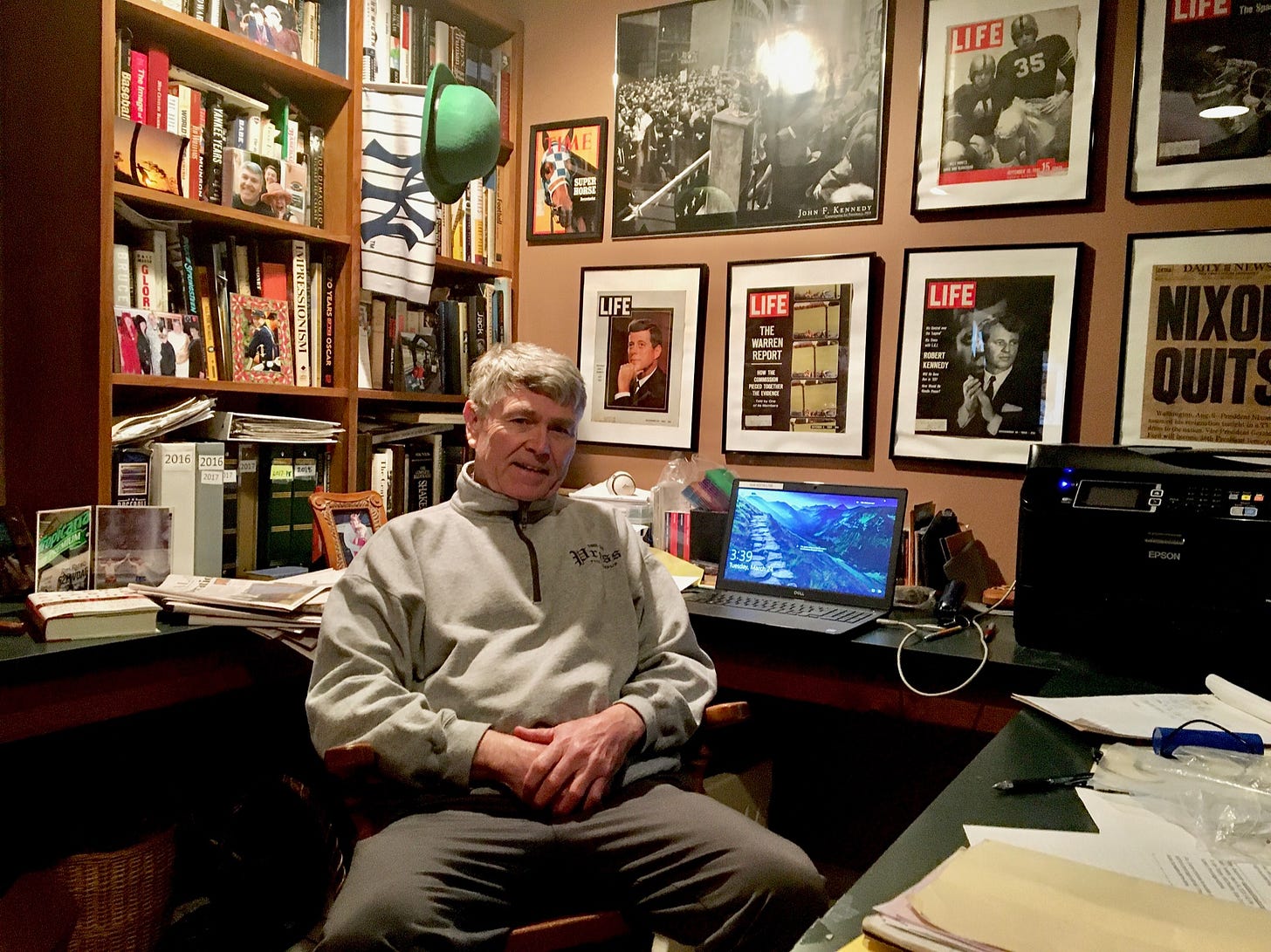The Front Page
Morning briefing
Wednesday, March 24, 2021
By Ken Tingley
The shooting in Boulder, Colorado on Monday was a flashback to two decades earlier when I had only been editor at The Post-Star for four months.
I found myself back there again on Monday, remembering like it was yesterday.
By the time we settled into our daily “Page 1” meeting, we knew something bad was happening in Colorado. This was the beginning of the horror that would become regular news over the next two decades.
That’s when Patrick Ridgell, one of our young sportswriters, walked into the meeting looking shaken.
Sportswriters don’t come to the “Page 1” meeting very often, so it got our attention.
He spoke haltingly about his old high school being on television and there might be lots of casualties.
Patrick, then 24, spent his sophomore year at Columbine High School. It was April 20, 1999. This was the first school shooting.
There was no playbook for this, no formula for reporting a mass shooting at a suburban high school similar to so many in our own communities.
I was 41 years old and in my fourth month as editor of The Post-Star.
As reporters and editors gathered around the newsroom television set in stunned silence, we watched the images of fleeing students wiggling through school windows and armed police officers marching them away, not knowing for sure if one of them might be the attacker.
It would become a familiar sight.
My strength as a newspaper editor in those early days was big-event coverage. From my sports experience, I knew how to mobilize forces on deadline to cover an event from a variety of angles and perspectives. I asked Patrick to write something for the front page about his time at Columbine, about what the community, people and school were like.
“I sat down to write and I didn’t know what to put down on paper,” Patrick wrote that day. “I didn’t know what I should say. Sportswriters can’t really know how to describe a situation of such weight. To give it some - any - perspective. I wonder who can?”
It was a ringing pronouncement that holds true up two decades later for each of the hundreds of mass shootings across the United States. It was also a sentiment that would permeate through our newsroom, and to a greater extent in our communities over the next two decades when there was increasingly less horror and shock, and the more pedestrian reaction, “Not again.”
“I heard the Jefferson County sheriff describe the school library as `a gruesome sight,’” Patrick wrote, followed by his fond recollection that in that very same library where police would find 10 murdered students, he had mustered the courage to ask a girl he liked out on a date for the very first time. That sweet coming-of-age memory would be forever tainted.
I’d like to say Columbine was the impetus for a robust and passionate discussion about school security, gun control and identifying mental illness in our communities. I’d like to brag that this was our opportunity to call out long-held beliefs about Second Amendment rights and gun control and how we led a dramatic community debate in a region of upstate New York where gun ownership was sacrosanct.
But we did not do that.
It is a reminder that editors, like other professionals, evolve and are shaped by their experiences. In newspapers, that means one news story at a time with the production of each new edition building on the next as you push your staff and yourself to better serve your readers and the greater community good.
I still don’t think we did enough on this issue.
I sent a note off to Patrick Ridgell on Tuesday. He is 45 now, has a wife and a couple of young daughters.
They all live in Thornton, Colorado, just a half-hour’s drive from Boulder.
Failing racism test
Here is The Post-Star’s editorial. Click Here.
Quotes of the Day
“I’ll be the first to say four years ago I told an African-American that I had hired at the YMCA that we don't have racism in Malone. I said it. I believed it. I learned from this person it actually does exist."
Michelle Schumacher, speaking at the Malone Village meeting about its police reform plan.
“As someone whose family has lived here for the past two decades, whose father is a pastor, who has taught in the local colleges, and who is know raising her children here, I cannot tell you how appalled I am that we would submit or even consider submitting a report that refers to the African-American community as transients.”
Precious Cain, speaking at village of Malone meeting.





